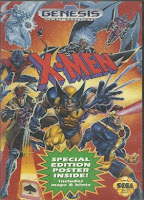This Family Saturday column, I'm going to talk briefly about a family line I've only begun to research. There are quite a few Tuckers on my father's side of the family, and I hope to uncover more about this particular branch someday, though time constraints currently make it a low priority.
The most recent Tucker in my family is Florella Amanda Tucker, born March 30, 1828 in Jackson, PA (about 30 miles north of Scranton). She was the daughter of Simeon Tucker and Lois Guile. She married Theodore Beza Gamble, and their daughter was my great-great grandmother, Mertie Florella Gamble, who married James Wilson Counts.
When I first ran into Tuckers in my family, I wondered if I might be related to Preston Tucker, the little-known car developer who was shafted by the "Big Three" auto makers in the late 1940's. He was a visionary in the field of car design, which is why the powers-that-be of the day fought to put him out of business. My father was very much a "car guy," so I learned a thing or two about Preston Tucker from an early age, though it wasn't until I saw the factual movie starring Jeff Bridges that I came to understand and respect his genius.
Well, as interesting as that may be, I haven't been able to trace any relation to Preston Tucker. His ancestors showed up in America a couple of hundred years after mine, so if we are distantly related, I'd have to trace his roots back into the 1500's, or perhaps even earlier. If that's even possible, I doubt it would be feasible to consider him a cousin at that point. Oh, well...
There are literally thousands of less distant cousins on my Tucker line, and as I said, I have yet to trace many of them. Simeon apparently had seven brothers and sisters, and his parents (both Tuckers, 3rd cousins once removed) had many siblings of their own. I really hope to put together a more comprehensive picture in the future, but at present most of my research has been vertical, as I sought to trace my own lineage.
 |
Tucker Family
Coat of Arms |
I've been able to trace the family line back to the 1400's in England, but the line could go centuries beyond that. There are apparently baptismal records for the ancient Tuckers going back almost to the Doomsday invasion of 1066. As impressive as that may be, there are a few lines of my family which can be traced even further (though I still have much work to do on them, so I won't go into detail just yet).
The first Tucker in my family who came to America was Robert Tucker (b. June 8, 1604 /died March 9, 1681). He came from Kent, England. He settled in Norfolk county Massachusetts sometime in the 1630's and married Elizabeth Allen in 1651. He may have had a previous wife, as his younger son, Benjamin, was born in 1646, while son Ephraim was born in 1653. Picking through various data, I have found mention of Robert being married to another woman named Susan Hyde, though information is limited, little more than a footnote. It is possible that Robert and Elizabeth had lived in sin for years and got married later, though it's a highly unlikely circumstance in the puritanical environment of early Massachusetts. Either way, one of the two sons I'm descended from was Elizabeth Allen's offspring.
Ephraim Tucker (b. August 27, 1653 /died October 1, 1736) married Hannah Gulliver on September 27, 1688 in Milton Massachusetts. Their son, Stephen Tucker Sr. (b. April 8, 1691) married Hannah Belcher on August 30, 1716 in Milton, MA. Their son, Stephen Tucker, Jr. (b. April 7, 1731 /died August 13, 1766) married Mary Brown in Preston City, Connecticut. Their son, James Tucker (b. October 29, 1762 /died September 18, 1841), was the father of Simeon.
Back to Robert Tucker's older son; Benjamin Tucker, Sr. (b. March 8, 1646 /died February 27, 1713) married Ann Payson in 1669 in Roxbury, Massachusetts. Their son, Benjamin Tucker, Jr. (b. March 8, 1670 /died October 8, 1740), married Elizabeth Williams in 1696, also in Roxbury, MA. Their son, Benjamin Tucker III (b. March 5, 1703 /died January 20, 1761), married Mary Warren in 1729. Their son, Benjamin Tucker IV (b. January 23, 1734 /died September 13, 1806), married Martha Davis on December 14, 1760. Their daughter, Sarah Angell Tucker (b. November 29, 1769 /died January 8, 1842), was the mother of Simeon.
So, bringing us up to the cousins marrying, James Tucker married Sarah Angell Tucker on November 5, 1795 in Charlemont, Massachusetts. They moved to Halifax Center, in Windham county Vermont, which is about 10 miles north of their marriage place, and Simeon was born there in 1804.
It's not the most comprehensive posting I've made about my family research, but it's a good basis for further investigation. I hope you have found something of interest in it.






















 with Clive Owen in the lead role (though that is a totally different story, so it's a lot like comparing a Model-T to a 1965 Mustang). That one gets top marks for story, acting, and special effects. I feel Excalibur's age has diminished its effectiveness, and thus it can't stand up to modern masterpieces.
with Clive Owen in the lead role (though that is a totally different story, so it's a lot like comparing a Model-T to a 1965 Mustang). That one gets top marks for story, acting, and special effects. I feel Excalibur's age has diminished its effectiveness, and thus it can't stand up to modern masterpieces.